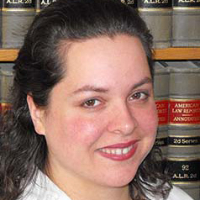Ellsworth Criminal Lawyer, Michigan
Sponsored Law Firm
-
 x
x

Click For More Info:
-
Law Office of Mark S. Guralnick
55 Madison Avenue 4th Floor Morristown, NJ 07960» view mapCriminal Defense Law Dedicated. Fearless. Successful.
Mark S. Guralnick and his legal team have helped clients throughout the USA and across the world by applying unparalleled dedication and hard work to each case.
800-399-8371
Jodi J. Doak
✓ VERIFIEDEstate, Traffic, Criminal
Mrs. Doak graduated from Thomas Cooley Law School in 2001 as the most decorated student in the school’s history, tying for 5th highest GPA in the sc... (more)
Allen Telgenhof
Litigation, Wrongful Termination, Criminal, Medical Malpractice
Status: In Good Standing
Alyse M. Tarbutton
Estate Planning, Family Law, Divorce & Family Law, Criminal
Status: In Good Standing Licensed: 11 Years
Brian K. Kasiborski
Real Estate, Dispute Resolution, Criminal, Business
Status: In Good Standing Licensed: 13 Years
Chris A. Bergstrom
Labor Law, Family Law, Criminal, Defamation & Slander
Status: In Good Standing Licensed: 47 Years
Christopher T. Turkelson
Family Law, Divorce & Family Law, Criminal
Status: In Good Standing Licensed: 27 Years
 Mark Guralnick Morristown, NJ
Mark Guralnick Morristown, NJ AboutLaw Office of Mark S. Guralnick
AboutLaw Office of Mark S. Guralnick Practice AreasExpertise
Practice AreasExpertise

